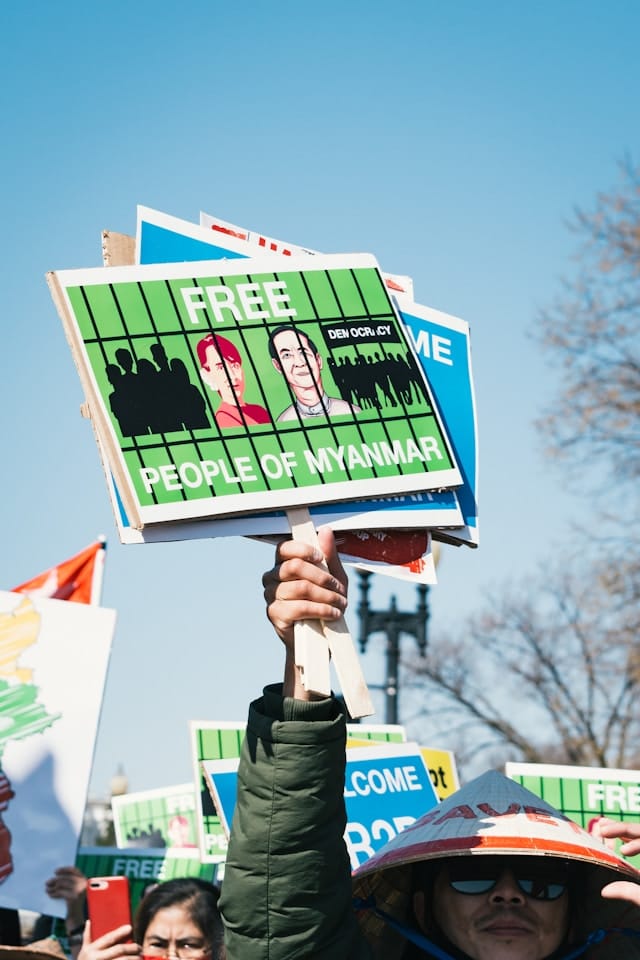Whether motivated by political unrest, economic change, or natural calamity, global events greatly affect people’s liberties and rights all around. These events affect not just the political scene but also the everyday lives of innumerable individuals, usually in ways that restrict their liberties and expose them to many kinds of injustice. Dealing with these worldwide issues calls for a thorough awareness of the ways in which events influence the liberties and rights of underprivileged groups, as well as the systems meant to defend them.
Economic Crises and Their Effects on Social Stability
Social stability and the defense of human rights suffer considerably during economic crises. Governments generally react with austerity policies, cutting down on social security, education, and healthcare when economies fail. These cutbacks disproportionately impact the most vulnerable groups, which fuels further poverty and social upheaval. Governments could also turn to harsh policies to keep control during such periods, therefore compromising civil freedoms. These acts can cause a negative cycle wherein the loss of rights aggravates social tensions and makes a recovery from economic crises much more difficult for communities.
Political Change and the Restrain of Civil Liberties
Another major worldwide event that might seriously restrict civil freedoms is political instability. Whether via coups, revolutions, or legislative reforms, political unrest sometimes impairs the rule of law. Constitutions can, therefore, be suspended, martial rule imposed, liberties like speech, assembly, and the press limited, and constitutions suspended. Political instability can also result in more persecution of minority groups—especially religious minorities like Christians. These groups can become targets of violence and prejudice in nations where political unrest is pervasive. With limited legal remedies, their persecution can range from social rejection to physical assault. For example, Christian persecution is still a major problem in nations going through political unrest when religious liberties are often the first to be sacrificed. Apart from a breach of basic human rights, this persecution is a sign of more underlying social problems that must be resolved if long-term stability is to be obtained.
Armed Conflicts and Violation of Minority Rights
Human rights violations—especially against minority groups—have historically been spurred by armed conflicts. The rule of law collapses, and crimes, including genocide and ethnic cleansing, become all too often under the anarchy of war. Millions of people are displaced by these wars, depriving them of their homes, means of income, and—above all—their rights. Particularly targeted during armed conflicts are minority populations, as warring sides can employ violence to achieve ethnic or religious homogeneity. Often, overly sluggish responses from the international community to such situations expose these populations to further exploitation and bloodshed. The effects on minority rights might be severe even after the fighting has stopped. Discrimination against minorities can be institutionalized in post-conflict cultures, therefore impeding their reclaiming of their rights and livelihoods.
Natural Events and the Marginalization of Particularly Vulnerable Groups
Though apolitical, natural catastrophes can have major political and social ramifications, especially for underprivileged populations. Often without the means to rebuild, the most disadvantaged groups suffer most when calamity hits. Governments can give aid to richer or politically significant areas priority, therefore allowing underprivileged areas to fend for themselves. As these people fight for food, water, shelter, and healthcare, this negligence can cause long-term abuses of rights. Moreover, natural catastrophes could cause conflicts over land and resources, especially in places with unclear property rights.
Global Health Crises and Restrain of Individual Freedoms
Global health emergencies like pandemics seriously compromise the defense of personal liberties. To stop the spread of illness, governments can limit travel, assembly, and privacy. Although these steps are sometimes required, they can also be misused, therefore compromising civil freedoms. Public health and personal rights have a difficult balance, and during world health emergencies, state authority usually prevails. As emergency responses are accepted, this might lead to long-term restrictions of liberties. Global health issues affect communities in different ways not perceived evenly. Marginalized groups—including the impoverished, ethnic minorities, and those with pre-existing medical conditions—are disproportionately impacted by both the health crisis itself and the responses done to alleviate it.
Conclusion
Global events influence liberties and rights in very significant and broad ways. Often left without the safeguards they need, underprivileged and vulnerable communities feel the worst effects of these catastrophes. Understanding the complicated interaction between global events and human rights helps one to create more successful plans for safeguarding and advancing liberties in a world growingly linked.






